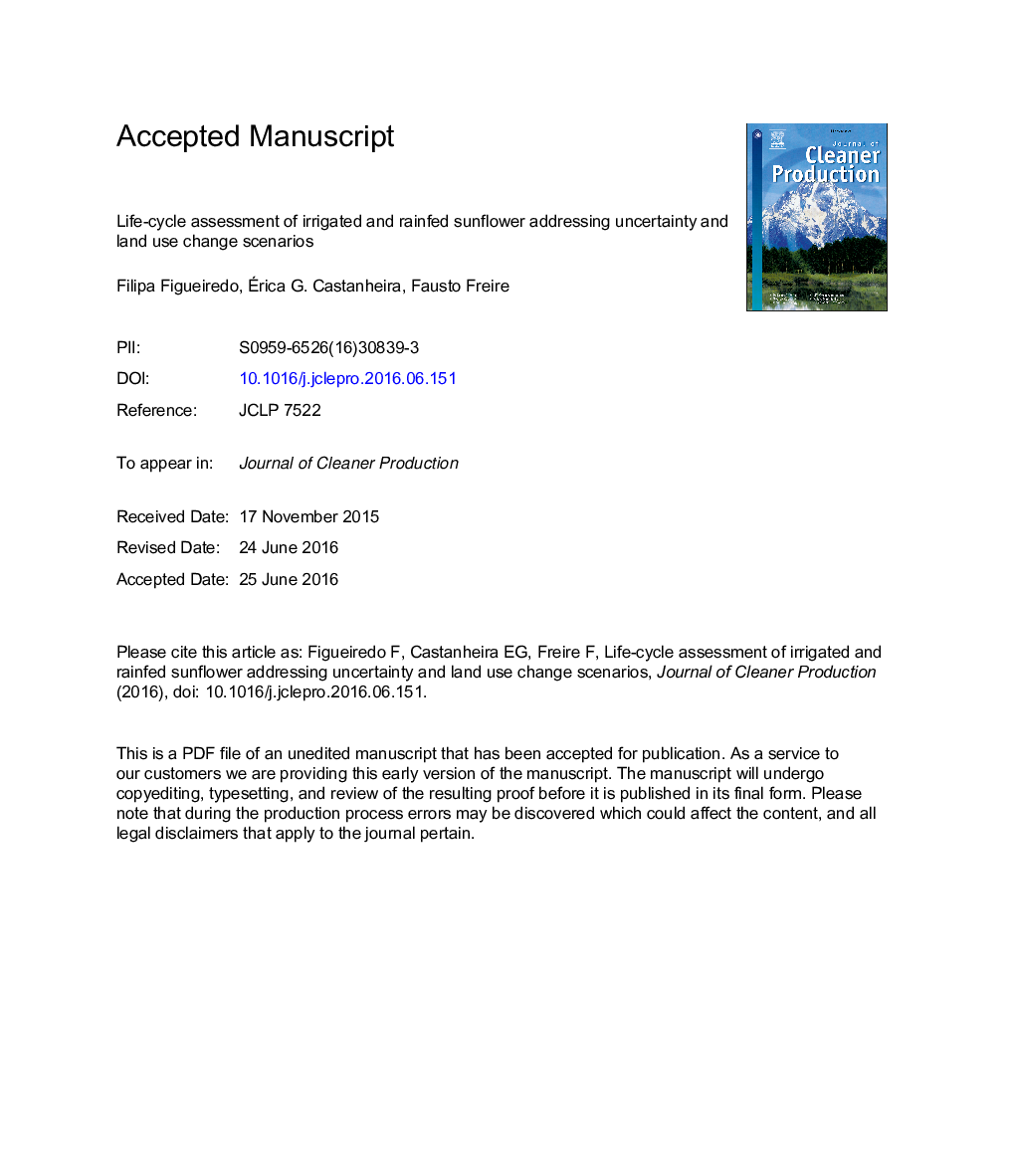| Article ID | Journal | Published Year | Pages | File Type |
|---|---|---|---|---|
| 5481521 | Journal of Cleaner Production | 2017 | 30 Pages |
Abstract
Sunflower is an important feedstock for food and energy purposes in southern European countries. The main goal of this article is to present an environmental life-cycle assessment of sunflower cultivated in Portugal comparing irrigated and rainfed systems, incorporating parameter uncertainty and assessing alternative land use change scenarios. The functional unit adopted was 1 kg of sunflower seeds (hectare of land was also addressed in a sensitivity analysis). The average productivity (kg haâ1 yearâ1) of irrigated sunflower was 3.5 times higher than of rainfed. Irrigated sunflower presented higher acidification impact than rainfed. Similar greenhouse gas intensity and eutrophication impact were found for irrigated and rainfed systems taking into account the high variability and uncertainty levels calculated. Higher uncertainty levels were observed for the impacts of irrigated sunflower compared with rainfed, due to field emissions. Greenhouse gas intensity of sunflower greatly depends on land use change scenarios (the lowest emissions occur for the conversion of severely degraded grassland into irrigated sunflower and the highest emissions for the conversion of improved management grassland into rainfed sunflower). The sensitivity analysis performed for the functional unit showed very different impacts per hectare of land compared with those calculated per kg of sunflower seeds: the irrigated system had the highest impacts for all categories.
Keywords
Related Topics
Physical Sciences and Engineering
Energy
Renewable Energy, Sustainability and the Environment
Authors
Filipa Figueiredo, Ãrica G. Castanheira, Fausto Freire,
